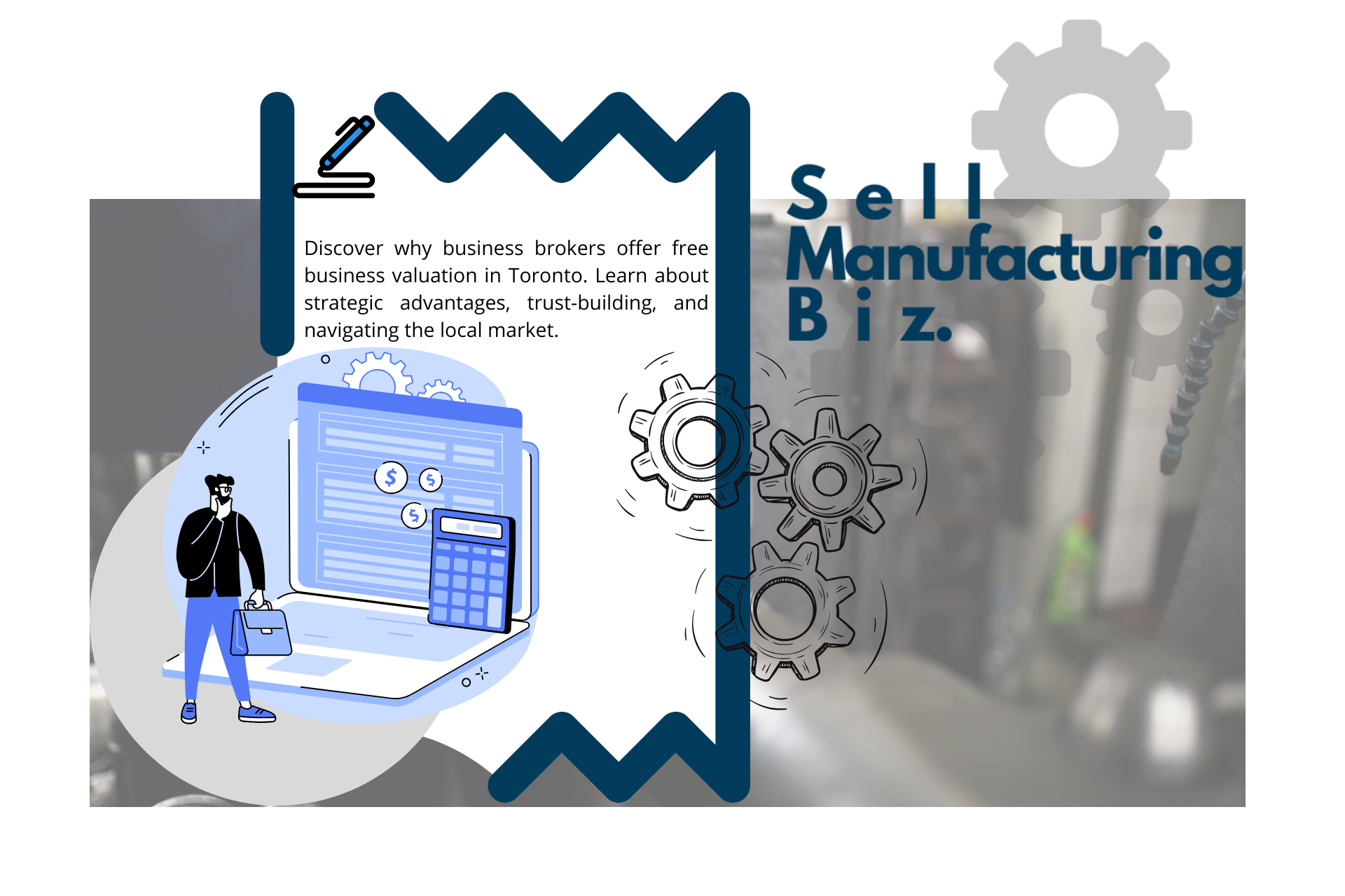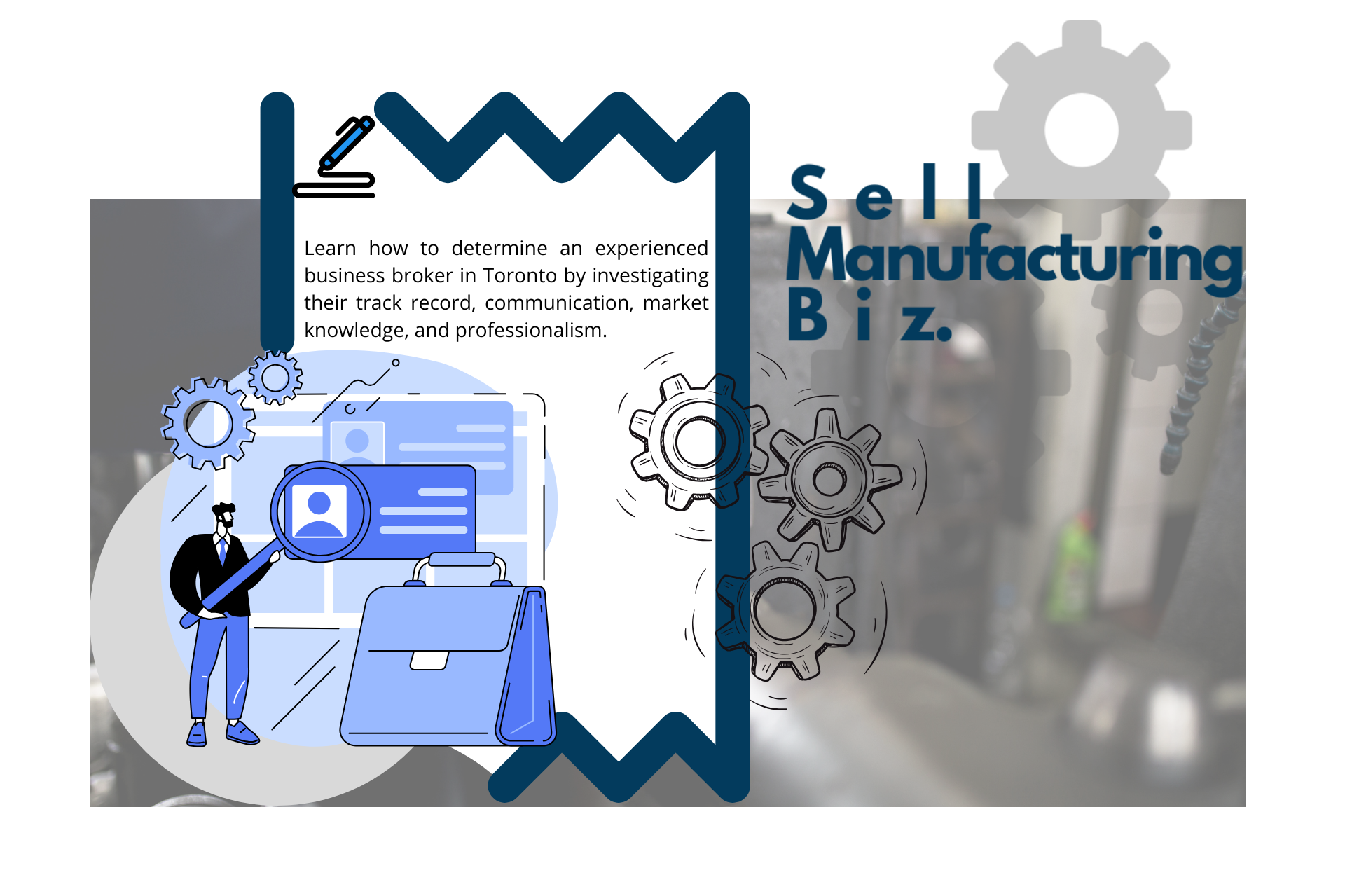How Much is a Business Worth to Sell in Canada? (For Manufacturing & Industrial SMEs)
How Much is a Business Worth to Sell in Canada
Find out how much your Canadian manufacturing or industrial SME is worth to sell. Get expert insights on business valuation methods, key factors, and estimating value before planning your exit in Canada.
As a Canadian owner of a manufacturing or industrial SME, knowing your business's true worth is paramount. This is critical when considering selling or planning your exit. Understanding your business's value is the essential first step to aligning its market worth with your personal and financial goals.
Business valuation in Canada is a complex process. It involves various methods, metrics, and unique factors. Understanding these components is essential for strategic decisions.
This article provides a comprehensive guide on how much a manufacturing business is worth in Canada and how much an industrial company is worth in Canada.
We explore how to accurately assess the value of your Canadian manufacturing or industrial SME before you list it for sale. We dive into widely accepted business valuation methods for SMEs in Canada, critical metrics used in Canada, and specific factors influencing value in your sector.
My goal is to empower Canadian manufacturing and industrial SME owners like you.
Get a clear picture of how to
estimate business value in Canada before selling. Use this information to make informed choices about your future exit.
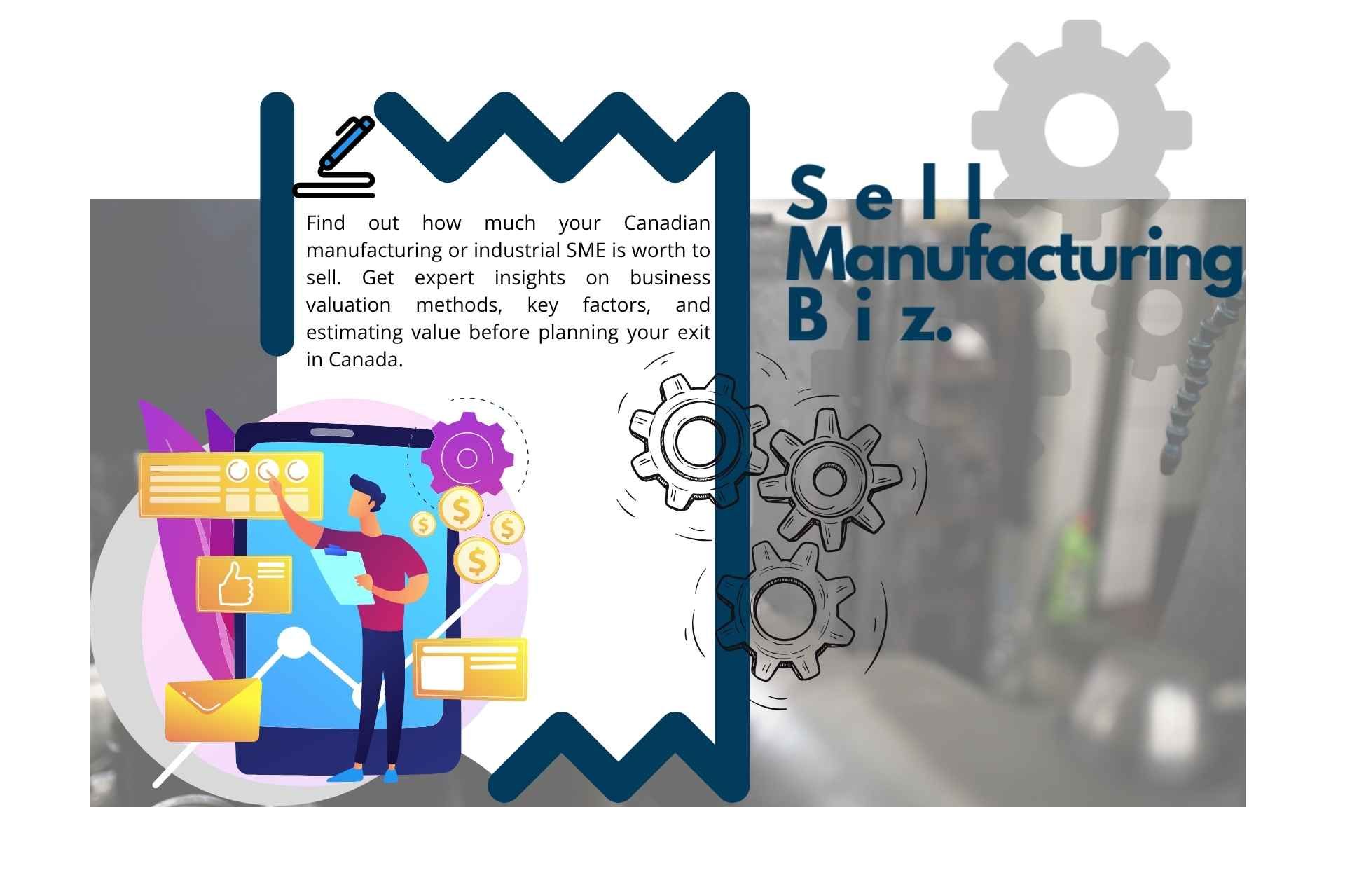
Why Assessing Your Business Worth Before Deciding to Sell is Crucial for Canadian SME Owners
Determining your business's value before you put it on the market is not just a good idea; it's a critical strategic imperative for Canadian manufacturing and industrial SME owners. My years in M&A in Canada show that owners who understand their value early make better decisions and achieve more successful exits.
- Align Value with Exit Goals: Understand if your business's current market value is sufficient to fund your retirement, next venture, or other post-exit plans. A pre-sale valuation answers whether your business sale supports your future.
- Identify the "Value Gap": See the difference between your business's current worth and what you need or want from a sale. This "value gap" is key for deciding whether to sell the business now or implement value enhancement strategies to increase business value before selling in Canada. As the CFIB's "Succession Tsunami" report highlights, a significant 76% of Canadian business owners plan to exit their business within the next decade, making this assessment timely and crucial for many manufacturing and industrial SMEs.
- Inform Your Strategic Plan: The valuation process highlights value drivers and weaknesses. This guides efforts to increase profitability and attractiveness to buyers if the current value is below your goal.
- Set Realistic Expectations: Get an objective, market-based understanding of value. This manages potential emotional bias and sets realistic expectations for the sale process.
- Prepare for Future Discussions: Gaining this understanding equips you for informed conversations with advisors and potential buyers. Knowing your business's financial standing and value drivers positions you strongly.
Understanding How Buyers Value Canadian Manufacturing & Industrial SMEs
When selling a manufacturing business in Canada and determining its valuation, understanding the buyer's perspective is essential. Buyers primarily invest in your business's future potential and stability, not just its past performance. They analyze your company through a specific lens, focusing on elements that promise future returns and minimize risk. Knowing what buyers look for in manufacturing business acquisitions in Canada is key.
Buyers evaluating manufacturing and industrial businesses in Canada focus on several key areas, representing the crucial buyer valuation criteria of Industrial SME in Canada:
- Future Earning Potential: Buyers assess your business's ability to generate consistent, growing profits and cash flow. They seek sustainable revenue streams.
- Operational Stability & Efficiency: Smooth production processes are paramount. Buyers scrutinize efficiency, quality control, and operational health for continued post-acquisition performance.
- Quality & Condition of Assets: The state of machinery, equipment, and facilities is critical. Buyers evaluate if assets support future production needs without major immediate investment.
- Supply Chain Reliability: A robust supply chain is vital for uninterrupted production. Buyers assess supplier relationships and resilience to disruptions.
- Management Team & Workforce: A strong team beyond the owner is a major value driver. Buyers want confidence that the business operates effectively after the owner exits. Retaining skilled labour is crucial, as highlighted by workforce challenges.
- Defensible Market Position: Buyers look for a clear competitive advantage. This includes niche focus, brand reputation, proprietary technology, or strong customer relationships.
- Geographic Location in Canada: Location impacts access to markets, materials, labour, and infrastructure. Regional economic conditions also play a role.
- Regulatory Compliance: Adherence to Canadian federal and provincial regulations is non-negotiable. A strong compliance history reduces buyer risk.
- Contracts & Backlog: Long-term customer contracts or a solid order backlog indicate predictable future revenue and reduce buyer uncertainty.
- Condition of Assets: Buyers closely examine asset age, maintenance, and technological relevance, assessing the need for future capital expenditures.
My experience shows that buyers in the Canadian market prioritize these operational and financial fundamentals. They seek businesses that are not overly reliant on the current owner, demonstrate predictable performance, and have the infrastructure and team for continued success.
Key Business Valuation Approaches for Canadian Manufacturing & Industrial SMEs
Determining a business's value is not an exact science; it's a process using accepted methodologies. In Canada, business valuation professionals rely on three widely accepted approaches. Each offers a different perspective.
For a comprehensive assessment of manufacturing and industrial SMEs, considering and reconciling indications from multiple approaches is standard.
Here are the core business valuation methods for SMEs Canada and their relevance to your manufacturing or industrial business:
- Income Approach: Focuses on the future economic benefits your business expects to generate. Value is the present value of anticipated future income or cash flow. Highly relevant as buyers purchase future profits. This is a key income approach to business valuation in Canada.
- Market Approach: Estimates value by comparing your business to similar businesses recently sold. Provides crucial external market context based on actual transactions. This is a primary market approach to business valuation in Canada.
- Asset Approach: Values the business based on the fair market value of its tangible and intangible assets, less liabilities. Particularly important for asset-heavy manufacturing/industrial companies, providing a crucial baseline value. This is the asset approach to business valuation in Canada.
Professionals typically consider and reconcile indications from these approaches for a comprehensive valuation.
Core Valuation Methods for Estimating Your SME's Worth in the Canadian Market (The How-To Explained)
Ready to estimate your Canadian manufacturing or industrial SME's worth? Let's break down the core valuation methods. Understanding these techniques shows how a professional valuator assesses your business and helps you speak their language.
Method 1: The Income Approach
This approach values your business based on its ability to generate future income for a buyer.
- Relevance for Manufacturing/Industrial SMEs: Directly reflects earning power, the main motivator for buyers seeking profitable operations.
- Common Techniques:
- Capitalization of Earnings/Cash Flow:
- Explanation: Values the business based on normalized historical or future earnings/cash flow divided by a capitalization rate (reflects return/risk). Best for stable earnings.
- Key Metrics for Canadian SMEs:
- EBITDA: Standard operational profitability measure. Widely used in Canada. Shows clear operational cash flow. This is key for the EBITDA multiple in manufacturing Canada.
- SDE: Used for smaller owner-operated businesses. Represents the total financial benefit to the owner. More appropriate when owner compensation is significant. This is key for the SDE multiple small businesses in Canada.
- Pros: Focuses on cash flow/profitability; can account for growth.
- Cons: Sensitive to assumptions; requires expert financial normalization.
- Discounted Cash Flow (DCF):
- Explanation: Project future cash flows. Discount them to present value using a risk-reflecting rate. Add a terminal value.
- Applicability: Useful for SMEs with significant expected growth or planned changes. More complex.
- Pros: Can model specific future scenarios.
- Cons: Highly sensitive to assumptions; requires detailed projections.
Method 2: The Market Approach
This approach estimates value by comparing your business to similar businesses recently sold in the market.
- Relevance for Manufacturing/Industrial SMEs: Provides crucial external market data from actual Canadian transactions. Aligns with how many buyers think.
- Common Technique:
- Comparable Company Transactions (M&A Multiples): Analyze valuation multiples (Sale Price / Financial Metric) from comparable private company sales. Based on industry, size (Revenue, SDE, or EBITDA), and location.
- Key Multiples for Canadian Manufacturing/Industrial SMEs: EBITDA and SDE multiples are most common in Canada.
- What is a good multiple for a small business in Canada? No single "good" multiple exists. It varies significantly by industry, size, growth, profitability, risk, and market conditions. Multiples often range between 3x to 6x EBITDA or SDE, but this is a broad range. Your specific business characteristics heavily influence where it falls.
- Importance of M&A Canadian Comparables : Using Canadian data provides a more accurate reflection of local market dynamics. Access to private Canadian transaction databases is key for reliable data.
- Pros: Based on real-world market data; easily understood.
- Cons: Difficult to find truly comparable private sales; doesn't fully capture unique business aspects.
Method 3: The Asset Approach
This approach values the business based on the fair market value of its assets less liabilities.
- Relevance for Manufacturing/Industrial SMEs: Highly relevant due to significant investment in physical assets (machinery, equipment, etc.). Provides a crucial baseline or "floor" value.
- Common Technique:
- Adjusted Book Value Method: Adjust historical balance sheet values to current estimated fair market values. Requires appraisal of significant assets.
- Pros: Provides concrete value based on physical assets; important if assets are a major part of the sale, or profitability is low.
- Cons: May not reflect value as a going concern (operations, earning potential beyond assets). Often undervalues profitable businesses.
For a robust valuation, a professional typically uses multiple approaches and reconciles indications.
Key Factors Affecting Your Manufacturing/Industrial SME's Valuation in Canada
Understanding valuation methods is one piece of the puzzle. Equally important is recognizing the specific factors that buyers and valuators scrutinize when assessing a manufacturing or industrial business in the Canadian market.
These elements significantly impact the final valuation figure.
Knowing these factors affecting business valuation in Canadian manufacturing is vital to increase the value of a manufacturing business before a sale.
Here are the key factors influencing your SME's worth:
- Financial Performance: Consistent revenue growth, strong and stable profitability (EBITDA/SDE margins), healthy cash flow, and effective working capital management are paramount. A solid track record increases value.
- Quality of Earnings: Predictable revenue, recurring contracts, diverse customer base (low concentration risk), and normalized expenses demonstrate sustainable earnings, boosting value.
- Operational Efficiency & Capacity: Condition and modernity of machinery, production bottlenecks, utilization rates, quality control, and lean practices directly impact profitability and scalability, key value drivers.
- Supply Chain Reliability: Stable supplier relationships, reduced reliance on single sources, and resilience to disruptions reduce buyer risk and enhance value.
- Management Team & Workforce: Strength of the team beyond the owner and retention of skilled labour/technicians are crucial for post-sale continuity and significantly impact value.
- Market Position & Competitive Advantage: Niche focus, brand reputation, proprietary technology/processes, strong customer relationships, and barriers to entry demonstrate a defensible position, contributing to sustainable future earnings and higher value.
- Geographic Location in Canada: Access to markets, raw materials, skilled labour, and relevant infrastructure impacts operational costs and market reach, influencing value.
- Regulatory Compliance: Adherence to Canadian federal/provincial regulations (environmental, labour, safety) demonstrates reduced risk for the buyer and increases value.
- Contracts & Backlog: Long-term customer contracts or a solid order backlog indicate predictable future revenue, significantly reducing buyer uncertainty and increasing value.
- Condition of Assets: Age, maintenance history, and technological relevance of machinery/equipment are closely examined. Well-maintained, modern assets capable of supporting future production enhance value by reducing required capital expenditures for the buyer.
Addressing these factors proactively before a sale process begins can significantly enhance your business's attractiveness and ultimately its market value.
Financials & Information Needed for a Business Valuation in Canada
Getting a reliable business valuation requires providing comprehensive and accurate financial documents for the business valuation and operational details to the valuator. Think of it as providing the essential ingredients for them to bake the most accurate cake possible.
For Canadian manufacturing and industrial SMEs, specific information needed to sell a business in Canada is critical. Here is a checklist of the necessary information a professional valuator will typically require:
- Historical Financial Statements: Provide 3 to 5 years of complete financial statements (Income Statements, Balance Sheets, Cash Flow Statements). Ideally compiled or reviewed by a Canadian CPA for accuracy and adherence to Canadian accounting standards.
- Corporate Tax Returns: Include corresponding corporate tax returns for the same period. These reconcile with financials and provide details for tax normalization.
- Interim Financial Statements: Provide year-to-date interim financial statements for recent performance insight.
- Detailed Breakdown of Owner Compensation and Perks: Essential for calculating SDE. Lists all compensation, benefits, and personal expenses paid through the business for normalization.
- List of Significant Tangible Assets: Compile a list of major assets (machinery, equipment, vehicles, real estate). Include age, condition, purchase details, and any appraisals.
- Inventory Reports: Provide detailed reports, including valuation method and aging. The value and condition of inventory are important.
- Accounts Receivable and Accounts Payable Aging Reports: Provide insight into working capital health.
- List of All Debts and Liabilities: Include details of all outstanding loans, lines of credit, mortgages, and other liabilities.
- Key Contracts: Provide copies of significant customer, supplier, and lease agreements. These impact future revenue and costs.
- Organizational Chart and Key Employee Details: Include an organizational chart and details on key employees/management (roles, tenure, compensation). Assesses team depth beyond the owner.
- Information on Intellectual Property or Proprietary Processes: Provide documentation for patents, trademarks, unique processes, or technology. These intangible assets can add significant value.
Gathering this information takes time, but it is necessary for a credible valuation. Organized documents streamline the process.
Getting a Professional Valuation in Canada: The Role of the CBV (and Other Experts)
While understanding valuation methods is valuable, attempting a comprehensive business valuation on your own is challenging. It involves complex analysis, proprietary market data, and expert judgment. Engaging a qualified professional in Canada is invaluable for a pre-sale assessment.
The leading professional designation for business valuation experts in Canada is the Chartered Business Valuator (CBV), governed by the CBV Institute.
What is a CBV in Canada? A CBV is a highly trained professional specializing in business valuation methodologies and best practices. Engaging a CBV or experienced Canadian M&A advisor offers significant benefits of a professional valuation:
- Objective & Accurate Analysis: Professionals apply methods correctly, normalize financials, and provide objective analysis free from owner bias. This leads to a more reliable market value estimate.
- Access to Canadian Market Data: Professionals (especially CBVs) subscribe to proprietary databases with actual Canadian private transaction details. Crucial for an effective Market Approach and realistic valuation.
- Expertise in Canadian Context: Understands Canadian accounting, tax laws (like LCGE), and legal nuances impacting valuation. Ensures valuation considers the relevant Canadian context.
- Credibility: A professional valuation report lends credibility to your business's value. Provides a reliable basis for decisions and discussions.
- Guidance on Value Enhancement: Professionals can pinpoint areas to improve value before selling. Critical if your initial valuation reveals a value gap.
Valuation reports range from less detailed Calculation Reports to comprehensive Valuation Reports.
A less formal report may suffice for an initial pre-sale assessment. To hire a business valuator in Canada, seeking a CBV is an excellent starting point to learn about professional business valuation services in Canada.
Using Your Valuation to Assess Alignment with Exit Goals (Your Strategic Decision Point)
Receiving your business valuation is a pivotal moment. It's crucial information informing your strategic decisions about selling your Canadian manufacturing or industrial SME. Interpret this result in the context of your exit objectives.
This is a key part of business exit planning in Canadian manufacturing.
- Compare Estimated Value to Goal: Does the estimated value meet your financial requirements for retirement, next venture, or other goals? Be realistic; consider net proceeds after taxes and costs. The Canadian LCGE is significant here, potentially making a portion of the capital gain tax-free.
- Analyze the "Value Gap": If calculated worth falls short, you identify a "value gap." The valuation report helps pinpoint why (e.g., lower multiples, operational inefficiencies, customer concentration). Understanding these components helps overcome the barrier of valuation difficulty. This is your value gap analysis.
- Making the Decision: Based on the valuation and value gap analysis, you face a strategic decision:
- Proceed with Sale Preparation: If value aligns with goals, move forward confidently.
- Implement a Value Enhancement Plan: If a gap exists, focus on improving specific areas identified by the valuation over 1-3 years before selling.
- Re-evaluate Goals: Adjust expectations if the market value is significantly lower than desired and enhancement is not feasible.
A realistic pre-sale valuation is an empowering tool. It clarifies strategic decisions– whether to sell the business now or build greater value for the future – ensuring your exit aligns with the value you've built.
Final Thoughts By Khaled Baranbo
For Canadian manufacturing and industrial SME owners, understanding your business's worth well before deciding to list it for sale is a foundational element of successful exit planning. Determining this value involves applying key valuation methods – Income, Market, and Asset – each offering a unique perspective crucial for this sector.
An accurate assessment requires a deep understanding of factors driving value in manufacturing and industrial landscapes: financial performance, operational efficiency, team quality, market position, and Canadian context. Navigating these complexities and accessing reliable Canadian-specific data is best achieved with a qualified professional like a Chartered Business Valuator (CBV).
A realistic pre-sale valuation empowers you with essential knowledge. It allows you to compare current market value against personal exit goals, identifying any "value gap." This insight is your strategic decision point. It guides you on whether to confidently pursue a sale now or implement a targeted value enhancement plan.
This proactive approach ensures your business exit aligns with the value you've dedicated years to building.
Frequently Asked Questions (FAQs)
Here are answers to some common questions Canadian manufacturers and industrial SME owners have about
business valuation in Canada:
What factors affect business valuation in Canada?
Key factors include financial performance, earnings quality, operational efficiency, supply chain, management team, market position, location, regulatory compliance, contracts, and asset condition.
What is a good multiple for a small business in Canada?
There's no single "good" multiple. It varies significantly by industry, size, growth, profitability, risk, and market conditions. Valuation professionals use comparable Canadian transaction data to determine relevant ranges.
What is a CBV in Canada?
A CBV (Chartered Business Valuator) is the leading professional business valuation expert designation in Canada, governed by the CBV Institute.
What financials are needed for business valuation in Canada?
Typically needed: 3-5 years of financial statements and tax returns, interim financials, owner compensation details, asset lists, inventory/AR/AP reports, debt lists, and key contracts.
How is valuing a manufacturing business different from a service business in Canada?
Manufacturing valuation emphasizes tangible assets (machinery, equipment, inventory), operational efficiency, production capacity, and supply chain more heavily than service business valuation.
Where can I find Canadian business sale multiple data?
Accessing reliable private Canadian business sale multiple data is challenging for individual owners. Professional CBVs subscribe to proprietary databases with this transaction information.
About the Author: Khaled Baranbo
Khaled Baranbo is a seasoned M&A professional with over 15 years of experience navigating the complexities of the Canadian market. He specializes in helping owners of manufacturing and industrial SMEs understand their business's true value and strategically plan for successful transitions.
His insights are drawn from extensive experience in dealmaking and business valuation across various industrial sectors in Canada.
Find a Business Broker Near You in Canada
Get in this queue for a whale’s tail. They are a beauty, eh
We just wanted to say hi and thanks for stopping by our little corner of the web. :) “Go ahead and eat your elephant ears on the chesterfield. I’ll come sit with you as soon as I take these runners off.” But, alas, this is the Internet.
However, we think you'll love our email newsletter about building value and properly position your manufacturing company before transition/exit your business.
As a special welcome gift for subscribing, you'll also get our helping and educational guides, tips, tutorials, etc.. for free.
It's filled with the best practices for retiring serial business owners like Joseph-Armand Bombardier, John Molson, Warren Buffett and many more.
Just sign up for our emails below.
